Spring 2024
Environmental Aftermaths: Cleaning up the "Mess" of US Empire from California to Korea
Apr. 12, 2024
Join us for the latest event in our Dialogues in the Environmental Humanities seminar series, featuring the 2023-24 EHI Graduate Fellowship Recipients! This event will take place on Zoom, on Friday, April 12, from 12:00-1:15 pm.
Zoom link
Meeting ID: 4895999888
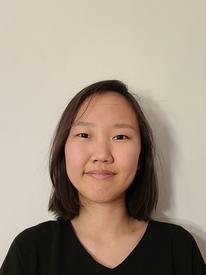
Eunice Kim, PhD candidate in History, will present the talk "Cleaning Up After Yourself: History of Environmental Activism Around US Military Bases."
Guam/Guåhan (US) and Busan (ROK) share a long history of hosting military bases due to their proximity to the ocean. The settler militarism and imperialism during the Cold War meant that by the end of 20th century, local movements calling for decolonization and sovereignty became increasingly focused on the fallout and costs of harboring US military bases on their land. This presentation will highlight the moments of environmental concerns and activism regarding the clean-up cost of these military sites, including Camp Hialeah and Ordot Dump, and how environmental regulations became a key tool for launching political campaigns surrounding land rights.
Eunice (Yun Jung) is a 5th year Ph.D. candidate in the Department of History who previously worked for non-profit organizations in South Korea that focused on issues of migration, asylum, and statelessness and for research projects in the United States that involve im/migration and AANHPI history. Their current dissertation project examines how the medical screenings coded in the US immigration laws and border policies intersect with the hygiene and environmental controls practiced by local governments and military units in Guam/Guåhan and Busan during the post-WW2 period.
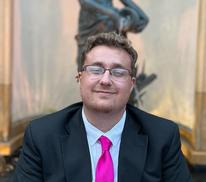
Alexander Hopp, PhD candidate in History, will present the talk "Crisis in More Ways than One: Hmong America at the Nexus of Race and Environmental Hazard"
During and after Southeast Asian refugee resettlement in the United States, Hmong Americans were racialized as environmental hazards, building on longer histories of racial "knowledge" that were then used to shape resettlement policies as well as the American public's understanding of their newest neighbors. This presentation will trace out the history of this representation and its ensuing impacts through three key moments in Hmong American history, considering urban agriculture in Minnesota, hunting disputes in Wisconsin, and marijuana cultivation in California to demonstrate how the rhetoric of environmental devastation is used to sustain projects of white supremacy and settler colonialism by attempting to dictate how Hmong Americans navigate their new surroundings. Ultimately, this presentation will argue that the representation of Hmong Americans as an environmental hazard in and of themselves offers a window into the process of racialization faced by Southeast Asian American refugees as well as a foundation from which to recenter Hmong agency in resettlement--moving past narratives of American exceptionalism to see how Hmong American do indeed represent a hazard, not to the environment, but to the racialized and exclusionary projects of ownership and belonging the shape life in the United States.
Alex Hopp (he/him) is a 4th year PhD Candidate in History. His dissertation project centers on the history of the Hmong diaspora with a specific focus on the intersection of race and placemaking during and after Hmong American refugee resettlement. Outside of his research, Alex spends his time teaching in the Asian American Studies Program at the University of Wisconsin-Madison and working for two organizations, Dreamers of Wisconsin and the PEOPLE Program, that seek to support students from historically marginalized groups as they navigate higher education.
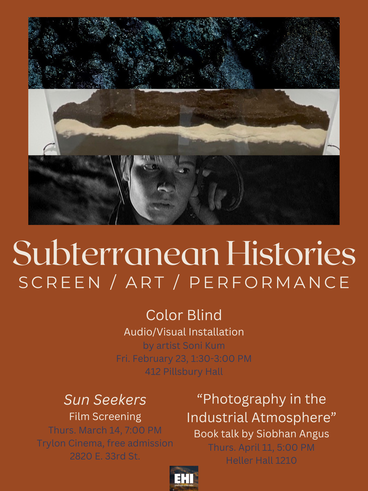
Subterranean Histories:
Screen / Art / Performance
Join us for a multimedia event series!
EHI is collaborating with the Department of Asian and Middle Eastern Studies and the German, Nordic, Slavic & Dutch Department on a series of international and interdisciplinary events. Join us for film, installation art, lectures and conversations investigating the relationships between humans and the little-explored worlds beneath our feet.
"Color Blind" audio/visual installation
Feb. 23, 1:30-3:00pm
412 Pillsbury Hall
Installation by Soni Kum, multimedia artist and spring 2024 Visiting Chair in Asian Studies. We are living on top of the layers of human’s repeated mistakes. Consisting of soil, ash, sand, and sound, the stratum is a metaphor for the accumulation and repetition of human violence that lie beneath the convenience of our everyday lives in modern society. Paired with Kum's readings of passages from Toni Morrison’s novels, "Color Blind" offers an homage to the countless lives that have been erased and buried in all corners of the world.
Sun Seekers screening at Trylon Cinema
Mar. 14, 7:00pm
2820 E. 33rd St.
Set in a uranium mine in the German Ore Mountains, Sun Seekers tells the story of the Soviet nuclear program, here framed as a matter of “world peace.” At the center of the film is a young woman named Lutz, sentenced to hard labour for suspected prostitution, who gradually comes to find her place in a new socialist world. Directed by the celebrated DEFA filmmaker Konrad Wolf, the film was banned in 1958 and only released in 1972. Combining gritty realism and melodrama, socialist propaganda and subtle moments of ideological critique, the film today stands as one of the most complex and daring productions of East German cinema.
A new subtitled DCP has been provided by the DEFA Film Library. More info on Trylon Cinema website.
Book talk: "Photography in the Industrial Atmosphere: Silver, Platinum, and Air Pollution
Apr. 11, 5:00pm
Heller Hall 1210
Lecture by Siobhan Angus, author of Camera Geologica: An Elemental History of Photography (from Duke University Press, 2024). Followed by a conversation with Katerina Korola, Assistant Professor of German Studies.
Fall 2023
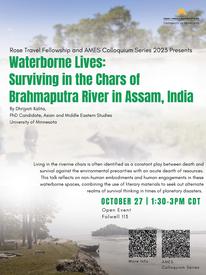
Colloquium on Waterborne Lives: Surviving in the Chars of Brahmaputra River in Assam, India
Oct. 27, 1:30 - 3:00pm
Please join the Department of Asian and Middle Eastern Studies for the upcoming AMES Colloquium. The Rose Travel Fellowship in the Arts and Humanities for Creative Research in Asia allows a student each year to work on a project related to their individual research interests. Dhrijyoti Kalita, the 2021 recipient, traveled to and within Assam, India over the summer of 2021 to investigate the complex entanglements of human and non-human agents in Indian/South Asian literary works, specifically select precarious, state-abandoned landscapes in Assam, popularly known as the chars.
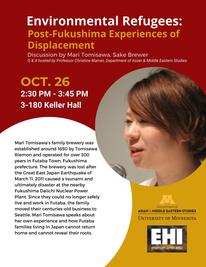
Mari Tomisawa on Environmental Refugees: Post-Fukushima Experiences of Displacement
Oct. 26, 2:30 - 3:45pm
Join us for a discussion with Mari Tomisawa, sake brewer, in a Q & A hosted by Professor Christine Marran of the Department of Asian & Middle Eastern Studies. Tomisawa speaks about her own experience and how Futaba families living in Japan cannot return home and cannot reveal their roots.
Caroline Levine on The Activist Humanist: Form and Method in the Climate Crisis
Sept. 28, 2023, 4 pm [webinar via Zoom]
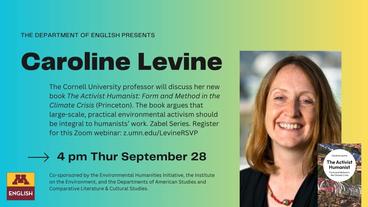
The Environmental Humanities Initiative is pleased to co-sponsor, with the English Department, a webinar by Caroline Levine, David and Kathleen Ryan Professor of the Humanities at Cornell University. Levine will be publishing her new book The Activist Humanist: Form and Method in the Climate Crisis (Princeton) this October 17. We are excited to host Levine, as her book is sure to be widely discussed: it argues that large-scale, practical environmental activism should be integral to humanists' work. "Crisscrossing between art works and public works—from urban transportation to television series and from food security programs to rhyming couplets—she considers which forms might support stability and predictability in the face of growing precarity."
2022-2023
Queer and Trans* Ecologies symposium
Mar. 23-25, 2023
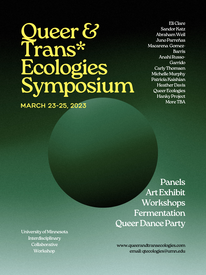
Save the date: On March 23-25, 2023, the Queer and Trans* Ecologies (QTE) Interdiscplinary Initiative will be holding a Queer and Trans* Ecologies symposium at the University of Minnesota, co-sponsored by EHI.
In addition to usual paper presentations and roundtables, there will be workshops (fermentation, screen printing, meditation), art exhibits, trips to learn about environmental justice efforts in the Twin Cities, and a costume dance party. Along with Corinne Teed, Jennifer Row, Erin Durban, and Kale Fajardo at UMN, confirmed participants include Sandor Katz (with Dana Thomson at NATIFS), Macarena Gomez-Barris, the Queer Ecology Hanky Project artists, Eli Clare, Abraham Weil, Michelle Murphy, Juno Parreñas, Patricia Kashian, Carly Thomsen, Anahi Russo-Garrido, and Eden Kincaid. Updated information will be posted on their website.
Erica Hannickel on Orchid Muse: The History of an Obsession in Fifteen Flowers
Mar. 17, 2023
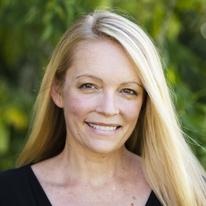
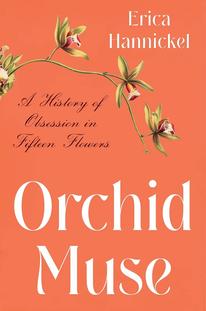
Join the Environmental Humanities Initiative on Friday, March 17, from 1:30-3 pm in Pillsbury 412 for a talk by environmental historian Erica Hannickel (Northland College) on her new book, Orchid Muse: The History of an Obsession in Fifteen Flowers (W.W. Norton, 2022). One of Literary Hub’s Most Anticipated Books of 2022, Orchid Muse tells the global story of “orchidomania,” transporting readers from the glories of the palace gardens of Chinese Empress Cixi to a seedy dime museum in Gilded Age New York’s Tenderloin, from hazardous jungles to the greenhouses and bookshelves of Victorian collectors. Hannickel gathers these bold tales of the orchid-smitten throughout history, while providing tips on cultivating the extraordinary flowers she features. Join us for a lively discussion of Hannickel’s book, the place of orchids in the environmental humanities, and the writing of popular nonfiction. Co-sponsored by the Department of English.
We hope to have some copies of Orchid Muse available for EHI-affiliated faculty members and graduate students in February. More info to come.
Cate Bruns and Kathleen Ibe: Dialogues in the Environmental Humanities
Feb. 17, 2023
Join us for the latest event in our Dialogues in the Environmental Humanities seminar series, featuring the 2022-23 EHI Graduate Fellowship Recipients! We will be meeting on Zoom, on Friday, February 17, from 1:30-3 pm.
Zoom link
Meeting ID: 984 1292 1681
Passcode: skX6uH
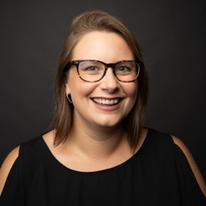
Catherine J. Bruns, PhD candidate in Communication Studies, will be speaking on “Pressing for Answers: Reflections on Wine and Climate Adaptation Research in Andalucía, Spain.”
The southern region of Andalucía, Spain has supported a thriving wine industry for centuries. Unfortunately, climate change is threatening the area’s water resources, forcing winemakers to choose between adapting to survive or maintaining tradition until it becomes unviable. Although climate policies and projections aim to encourage agricultural adaptation, affecting change in winemaking is as much about understanding how humans perceive climate expertise as it is about presenting new growing strategies. This presentation will share ongoing efforts to craft a dissertation that aims to examine how climate adaptation is debated, represented, and understood within the Andalusian wine community. Specifically, this presentation will reveal preliminary findings from a pilot study, discuss how these results have informed an ongoing content analysis, and outline next steps for the future of this research. In doing so, this presentation will begin to unpack how climate knowledge and expertise is defined in the Andalusian wine community.
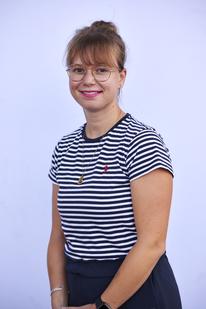
Kathleen Ibe, PhD candidate in Germanic Studies, will be speaking on “Narrating Earth: An Ecofeminist Approach to Non-Human Agency.”
Ibe’s dissertation, entitled “Feminist Perspectives on Non-Human Agency: A More-Than-Human Approach to German 20th and 21st-Century Literature,” explores discourses on non-human agency and how feminist perspectives contribute to their discussion. It argues that recognition of materiality enables us to uncover how the four elements of earth, air, fire, and water relate to narratives. Ibe’s talk will focus on the first chapter of her dissertation, looking at the element earth. This chapter serves as an introduction to environmental writing in the 1980s, focusing on Christa Wolf’s novella Störfall: Nachrichten eines Tages. Published in 1987, the novella highlights the complex interactions of radioactive particle radiation and the element earth, narrated from a female protagonist’s perspective.